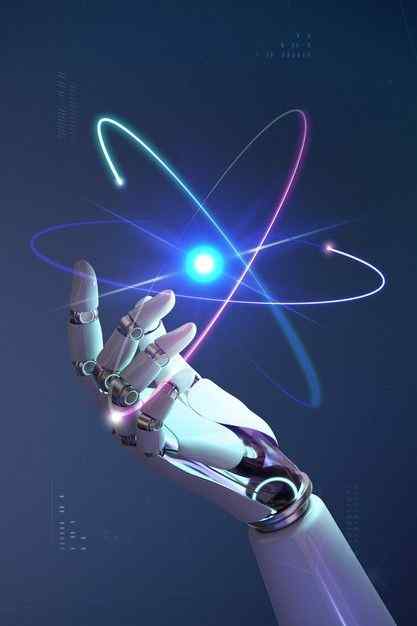Artificial Intelligence (AI) has become a buzzword in recent years, captivating the attention of individuals, businesses, and governments alike. This revolutionary technology has the potential to transform various aspects of our lives, from healthcare and transportation to education and entertainment. In this article, we will explore the profound impact of AI on modern society and delve into its implications for the future.
The Rise of Artificial Intelligence
Artificial Intelligence, as a concept, has been around for decades. However, recent advancements in computing power and data availability have propelled AI into the mainstream. Machine Learning, a subset of AI, has enabled computers to learn from vast amounts of data and make predictions or decisions without explicit programming. This breakthrough has opened up new possibilities and applications for AI across industries.
AI in Healthcare
One of the most promising areas where AI is making a significant impact is healthcare. From early disease detection and diagnosis to personalized treatment plans, AI has the potential to revolutionize the way we approach healthcare. Machine Learning algorithms can analyze medical images, such as X-rays and MRIs, with incredible accuracy, aiding doctors in making more informed decisions. Additionally, AI-powered chatbots and virtual assistants can provide patients with personalized healthcare advice and support, improving accessibility and reducing the burden on healthcare professionals.
AI in Transportation
Transportation is another sector that stands to benefit greatly from AI. Autonomous vehicles, powered by AI algorithms, have the potential to make our roads safer and more efficient. These self-driving cars can analyze real-time traffic data, predict potential hazards, and make split-second decisions to avoid accidents. Furthermore, AI can optimize transportation routes, reducing congestion and fuel consumption. The integration of AI in transportation has the potential to transform the way we travel and revolutionize the logistics industry.
AI in Education
In the field of education, AI has the potential to personalize learning experiences and improve educational outcomes. Intelligent tutoring systems can adapt to individual students' needs, providing tailored instruction and feedback. AI-powered chatbots can also assist students in answering questions and providing additional resources. Furthermore, AI can analyze vast amounts of educational data to identify patterns and trends, enabling educators to make data-driven decisions and enhance the overall learning environment.
AI in Entertainment
The entertainment industry has also embraced AI in various forms. Streaming platforms, such as Netflix and Spotify, use AI algorithms to recommend personalized content based on users' preferences and viewing habits. Virtual reality (VR) and augmented reality (AR) technologies, powered by AI, offer immersive and interactive experiences in gaming and entertainment. AI can also be used in content creation, such as generating music or writing scripts, pushing the boundaries of creativity and innovation.
The Ethical Considerations of AI
While the potential of AI is vast, it also raises important ethical considerations. The use of AI in decision-making processes, such as hiring or loan approvals, can perpetuate biases and discrimination if not carefully regulated. Privacy concerns also arise with the collection and analysis of vast amounts of personal data. Additionally, the impact of AI on the workforce and job displacement is a topic of concern. It is crucial for society to address these ethical considerations and ensure that AI is developed and deployed in a responsible and inclusive manner.
FAQ
_What is Artificial Intelligence?_
Artificial Intelligence refers to the development of computer systems that can perform tasks that would typically require human intelligence. These tasks include speech recognition, decision-making, problem-solving, and learning from experience.
_How is AI used in healthcare?_
AI is used in healthcare for various purposes, including medical image analysis, disease diagnosis, personalized treatment plans, and virtual assistants for patient support.
_ Can AI replace human jobs?_
While AI has the potential to automate certain tasks, it is unlikely to completely replace human jobs. Instead, AI is more likely to augment human capabilities and create new job opportunities.
_ What are the ethical concerns surrounding AI?_
Ethical concerns surrounding AI include biases in decision-making algorithms, privacy concerns, and the impact on the workforce and job displacement.
How can society ensure responsible AI development?_
Society can ensure responsible AI development through robust regulati
ons, transparency in algorithms, ethical frameworks, and ongoing dialogue between stakeholders.
Artificial Intelligence is transforming modern society in profound ways, from healthcare and transportation to education and entertainment. The potential of AI is vast, but it also raises important ethical considerations that must be addressed. By harnessing the power of AI responsibly and inclusively, we can unlock its full potential and create a future where AI benefits all of humanity.




